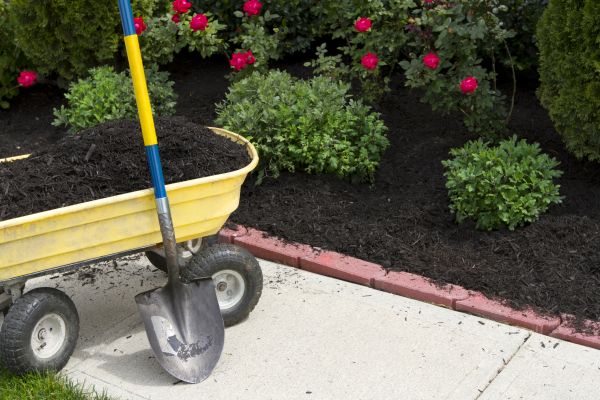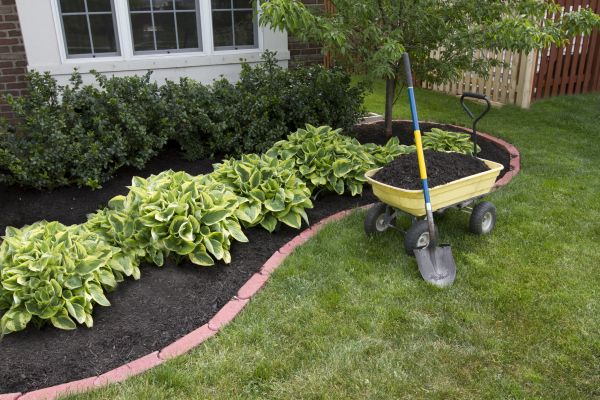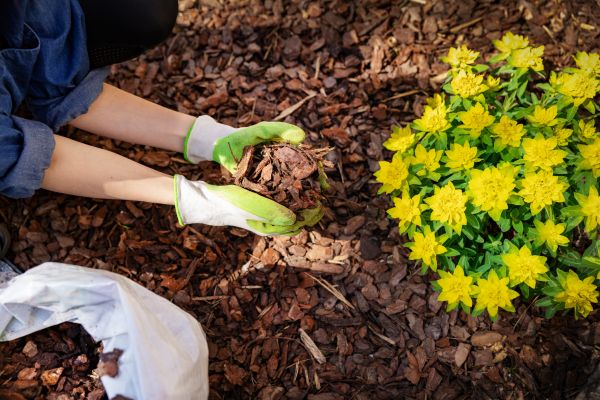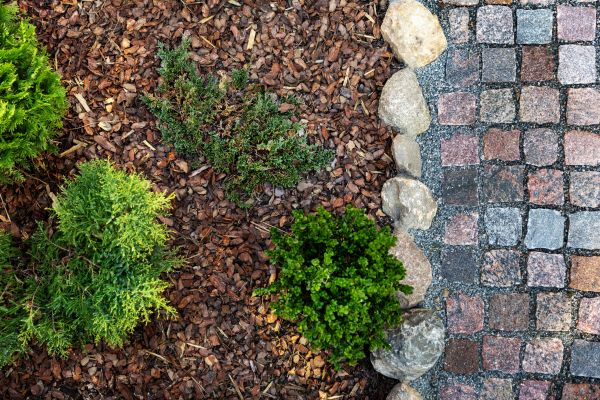Landscape Mulching Service
Affordable Landscape Mulching
Landscape mulching is a vital practice in maintaining a healthy and aesthetically pleasing garden. It involves applying a layer of material, such as wood chips, bark, or straw, over the soil surface around plants. This technique not only enhances the visual appeal of a garden but also plays a crucial role in promoting plant health. Mulching helps retain soil moisture, suppresses weed growth, and provides nutrients as it decomposes, creating a favorable environment for plants to thrive. By acting as a protective barrier, mulch also helps to regulate soil temperature and prevent erosion, making it an essential component of sustainable landscape management.
Benefits of Landscape Mulching
-
Moisture Retention
One of the primary benefits of mulching is its ability to retain soil moisture. By covering the soil, mulch reduces the rate of evaporation, ensuring that plants have access to water for longer periods. This is particularly beneficial during hot and dry seasons, as it reduces the need for frequent watering and helps conserve water resources. -
Weed Suppression
Mulching significantly reduces weed growth by blocking sunlight from reaching the soil surface. This prevents weed seeds from germinating and competing with plants for nutrients and water. A well-mulched garden requires less time and effort to maintain, allowing for a more enjoyable gardening experience. -
Soil Temperature Regulation
Mulch acts as an insulating layer, helping to regulate soil temperature. It keeps the soil cooler during hot summer months and provides warmth during colder seasons. This temperature regulation is crucial for maintaining consistent growth conditions for plants, protecting them from extreme weather fluctuations. -
Nutrient Enrichment
As organic mulches decompose, they enrich the soil with essential nutrients, improving soil fertility and structure. This natural process enhances the growth and health of plants, reducing the need for chemical fertilizers and promoting a more sustainable gardening approach. -
Erosion Prevention
Mulch helps prevent soil erosion by reducing the impact of rain and wind on the soil surface. This protective layer minimizes runoff and keeps the soil intact, preserving the landscape's structure and preventing nutrient loss.
FAQs About Landscape Mulching
What types of materials can be used for mulching?
Common materials for mulching include wood chips, bark, straw, grass clippings, and compost. Each type has its benefits, and the choice depends on specific garden needs and aesthetic preferences.
How often should mulch be replaced?
Mulch should be replenished at least once a year, usually in spring or fall. However, the frequency may vary depending on the type of mulch used and how quickly it decomposes.
Can mulch attract pests to the garden?
While mulch can provide a habitat for some insects, it generally does not attract pests. In fact, certain types of mulch, such as cedar, have natural pest-repellent properties.
Is there a recommended depth for applying mulch?
A mulch layer of about 2 to 4 inches is typically recommended. This depth is effective for moisture retention and weed suppression without suffocating plant roots.
Enhance your garden's health and beauty by filling out the contact form to request professional Landscape Mulching today. Experience the benefits of moisture retention, weed suppression, and more with expertly applied mulching services.




